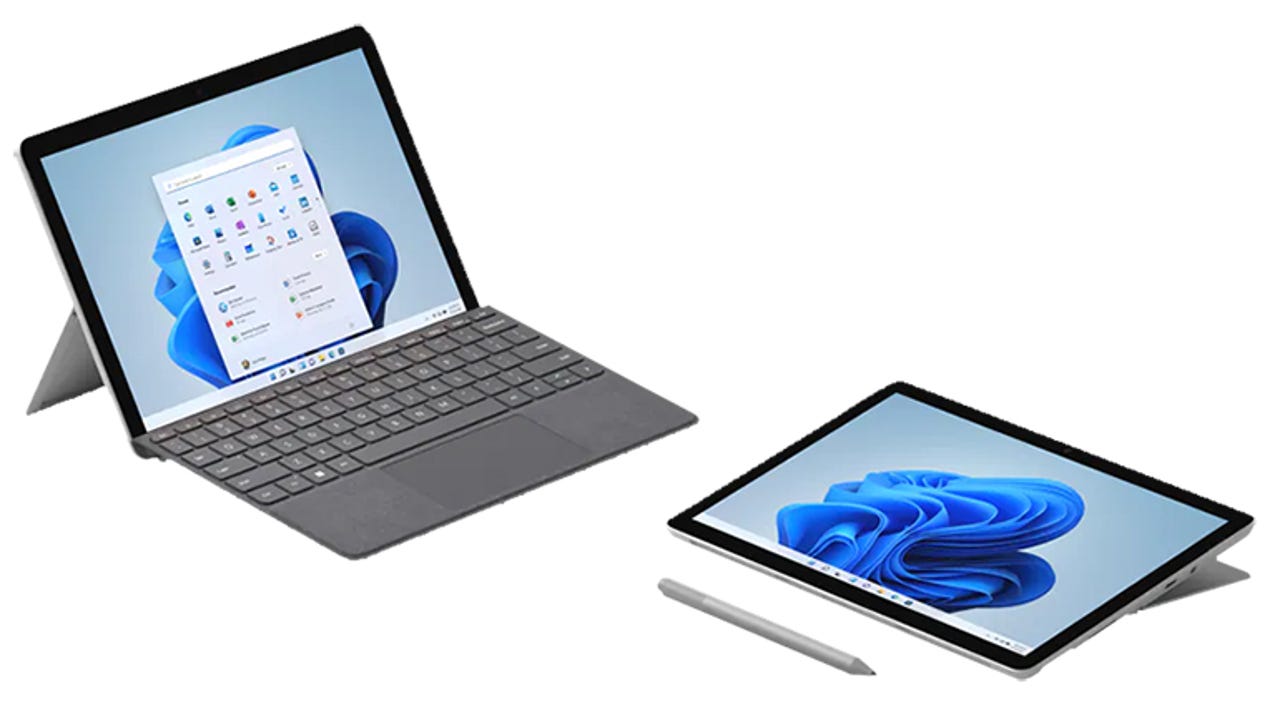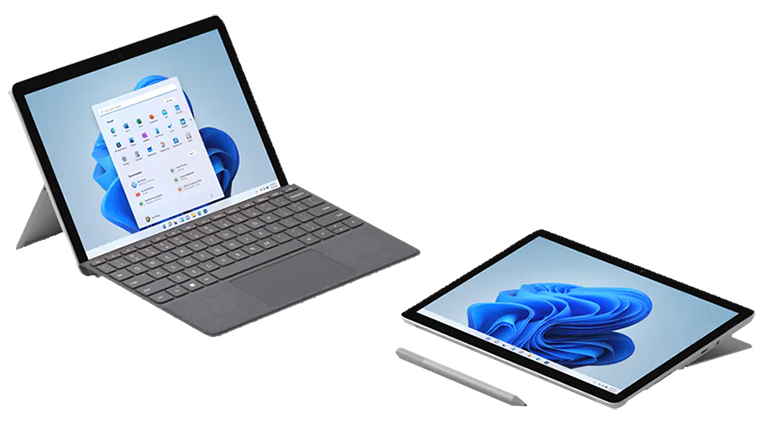'ZDNET Recommends': What exactly does it mean?
ZDNET's recommendations are based on many hours of testing, research, and comparison shopping. We gather data from the best available sources, including vendor and retailer listings as well as other relevant and independent reviews sites. And we pore over customer reviews to find out what matters to real people who already own and use the products and services we’re assessing.
When you click through from our site to a retailer and buy a product or service, we may earn affiliate commissions. This helps support our work, but does not affect what we cover or how, and it does not affect the price you pay. Neither ZDNET nor the author are compensated for these independent reviews. Indeed, we follow strict guidelines that ensure our editorial content is never influenced by advertisers.
ZDNET's editorial team writes on behalf of you, our reader. Our goal is to deliver the most accurate information and the most knowledgeable advice possible in order to help you make smarter buying decisions on tech gear and a wide array of products and services. Our editors thoroughly review and fact-check every article to ensure that our content meets the highest standards. If we have made an error or published misleading information, we will correct or clarify the article. If you see inaccuracies in our content, please report the mistake via this form.
Microsoft Surface Go 3 review: A portable and versatile 2-in-1, but battery life disappoints


Microsoft's 10.5-inch Surface Go 3 weighs 544g (1.2lbs) without the Type Cover keyboard.
The latest model of Microsoft's diminutive 2-in-1 tablet/laptop, the Surface Go 3, has the usual excellent Surface build quality and industrial design, and is externally indistinguishable from the Surface Go 2. The two most recent Surface Go models have a slightly higher-resolution 10.5-inch screen (1920x1280 vs 1800x1200) than the original Surface Go.
The consumer version of the Surface Go 3 starts at $399.99, while the 'for Business' model, with extra security and management features, and optional LTE mobile broadband, costs from $499.99.
The Surface Go 3 costs from $399.99 (Type Cover and Surface Pen not included).
The new Surface Slim Pen ($129.99) will work with the Surface Go 3 (as will any Surface Pen), but the keyboard hasn't been updated with the charging well. If you have the keyboard from an older Surface Go model, it's exactly the same Type Cover ($84.99). Neither pen nor keyboard are included in the tablet's price.

Microsoft Surface Go 3
pros and cons
- The most affordable Surface device
- Excellent 10.5-inch screen
- High-quality webcam and speakers
- Core i3 processor option
- Disappointing battery life under mainstream workloads
- Keyboard and stylus not included
- Not the best showcase for Windows 11
One USB-C (not USB 4) port plus the 3.5mm audio jack and a MicroSD card slot under the kickstand means you're plugging in one peripheral at a time. But the Surface Connect port means you don't have to choose between a peripheral and charging, although you can still charge over USB-C if you need to. Networking is the latest Wi-Fi 6 (802.11ax, which is newly supported in Windows 11) and Bluetooth 5.0.
The Surface Go 3 (left) has a slimmer screen bezel than the first-generation model (right), but is unchanged from the Surface Go 2.
The consistency is deliberate. Keeping the form factor and port placement the same is an advantage for organisations that buy accessories like protective cases. Various healthcare and emergency services in the UK are using Surface Go as a lightweight and very portable option, for example, as are call centres where the small footprint, low price and ability to drive an external monitor are key.
Surface Go 3 keeps the ports and buttons in the same place as the original Surface Go (top device in each image).
The front-facing webcam is still a 5MP model that can record 1080p at 30fps, but that was already one of the better laptop webcams around, easily beating the 720p cameras in many laptops. The 8MP rear camera is fine for snaps but not a patch on what's in the average smartphone. The Windows Hello 3D camera is also excellent, recognising us in a range of lighting conditions as soon as we turned the device on. The Dolby Audio stereo speakers sound good for both music and video calls.
The Surface Go 3 may look unchanged externally, but inside the case, there's a spec bump. We looked at the top-end model with an Intel Core i3-10100Y processor, 8GB of RAM and 128GB of SSD storage. This costs $629.99 in consumer guise, or $679.99 as a 'for Business' model. Cheaper consumer models have a Pentium Gold 6500Y with 4GB RAM/64GB eMMC ($399.99, but may struggle with performance) or 8GB RAM/128GB SSD ($549.99).
The new Core i3 CPU delivers a respectable improvement on earlier Surface Go models. It's very usable for mainstream business apps, browsing and video meetings in Teams, but (as noted below) the Windows 11 interface doesn't always feel as fast and performant as the benchmark results might lead you to expect. Interestingly, we saw better benchmark performance when using the Go 3's own charger, rather than the (official, Microsoft) charger from an earlier-generation Surface.
Battery life, as always, depends on what you're doing. Playing videos relies on heavily GPU hardware acceleration, so it's actually very power efficient and we were able to play videos continuously for slightly longer than Microsoft's claimed 11 hours. But with the screen set to only 36% brightness, web browsing, using Twitter, copying files and using Office apps like OneNote and Outlook used up 75% of battery life in just under two hours. Battery saver kicked in that this point and we got another 75 minutes of work done, adding up to a disappointing 3 hours and 15 minutes. For comparison, an original Surface Go running Windows 10 with only 50% charge gave us two hours of work in similar conditions.
Of course, with a tiny, lightweight tablet like this, you may not be settling down to work for hours, but grabbing the Go for a few minutes at a time and then closing the lid. We found the Go 3 was still a bit more power hungry than the original Go in those circumstances (using up 11% of the battery in 22 minutes rather than 6% in 18 minutes), so you may want to slip a battery bank into your bag when you're out and about.
Windows 11
Microsoft told us that the Arm-based Surface Pro X will be the only Surface that ships only with Windows 11; on other devices like the Surface Go 3, users will have the choice, but our review unit came with Windows 11. We were able to install the new Windows Subsystem for Android and run apps like Amazon Kindle and (by sideloading the Google Play Store) Geekbench, all of which ran just as well as regular Windows apps. In fact, when we used the Android version of Geekbench, the scores were almost comparable on some runs.
Sketchbook running on Surface Go 3 with Windows 11: an Android app that 'just works'.
On a small screen like the Surface Go 3, phone apps aren't out of place (they're certainly optimised for touch) and the smartphone-style Windows 11 interface may make more sense -- swiping over the edges of the screen to open widgets and notifications is more natural on a tablet than a laptop, for example. If you like Windows 11, you'll like it on the Surface Go 3.
But the joy of the Surface Go has always been that it's a real PC that can run standard Windows workloads -- just in a tiny, light and slim package. So if you find Windows 11 irritating on a larger screen, you may not like it much better here.
We found the Windows 11 touch affordances such as a large invisible border around windows, which is meant to make them easier to move or resize, actually got in the way. That's because they block what's behind the border -- like a browser tab you can see but not close or select.
Windows 11 may also disguise the true performance of the Surface Go 3. Some of what we initially thought was poor hardware performance was down to the inability to select and open apps reliably with touch. And when we attached the keyboard, focus would randomly switch from one window to another or move the cursor randomly inside text, while we were in the middle of typing. That's disappointing for a new operating system on what's otherwise nice new hardware.
Conclusions
Like the previous models, the Surface Go 3 shines as a portable device: it's perfect for working on an airplane tray table or a crowded train, and for throwing in a backpack or the kitbag in the back of a vehicle. However, battery life seems to have regressed either because of the new Core i3 CPU or Windows 11.
The high-quality 220ppi PixelSense screen makes watching videos fun, and the speakers and webcam make for excellent video calls in Teams. But you'll definitely want to pick the higher-spec Core i3 model, and unless you're a Windows 11 fan or really need a particular Android app, Windows 10 might be the better choice until more of the kinks are ironed out.
RECENT AND RELATED CONTENT
Microsoft Surface Go 2 review: A compact 2-in-1 for remote workers and mobile pros
Surface Go, First Look: Small, light, and the best cheap PC ever
Microsoft introduces Windows 11 SE, new $250 Surface Laptop SE for education market
What laptop should I buy, Windows or MacOS? Plus 10 more things to consider
The best Surface PC: Every Surface device is Windows 11-ready
Read more reviews
- Spigen case roundup for Google Pixel 6 Pro: Affordable protection, utility, and style
- Realme 8i review: An affordable phone with a 120Hz screen and good battery life
- HP CC200 projector review: Compact, embedded speakers, and simple to set up and use
- CAT S22 Flip review: Rugged, classic Android phone for connectivity in the field
- Annke NC400 and NC800 security camera review: Nice mid-price cameras -- but the desktop app needs to be updated